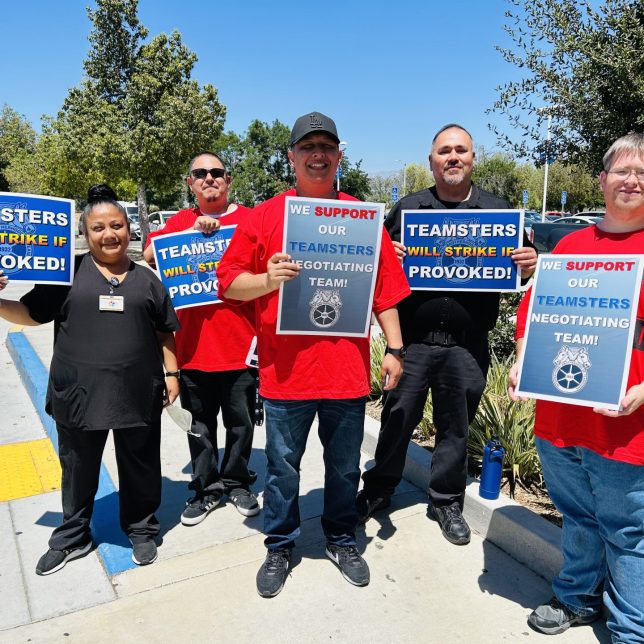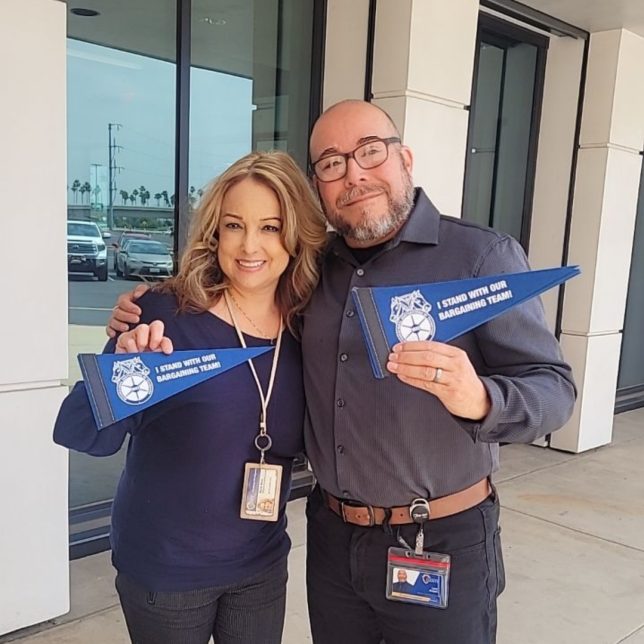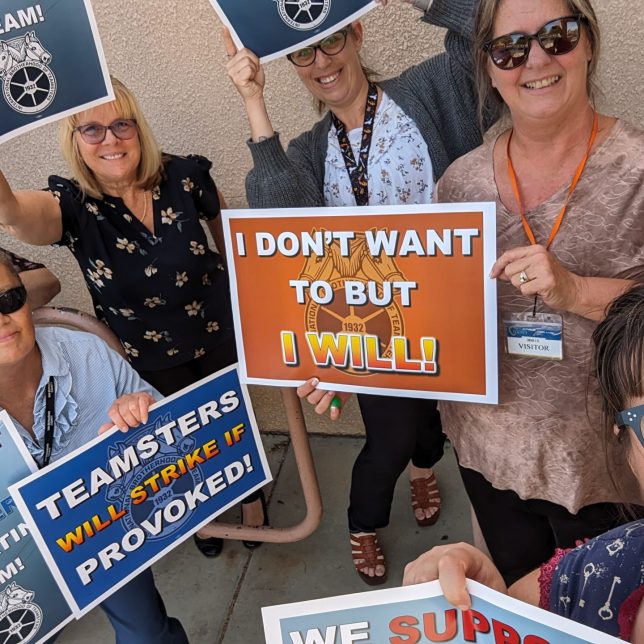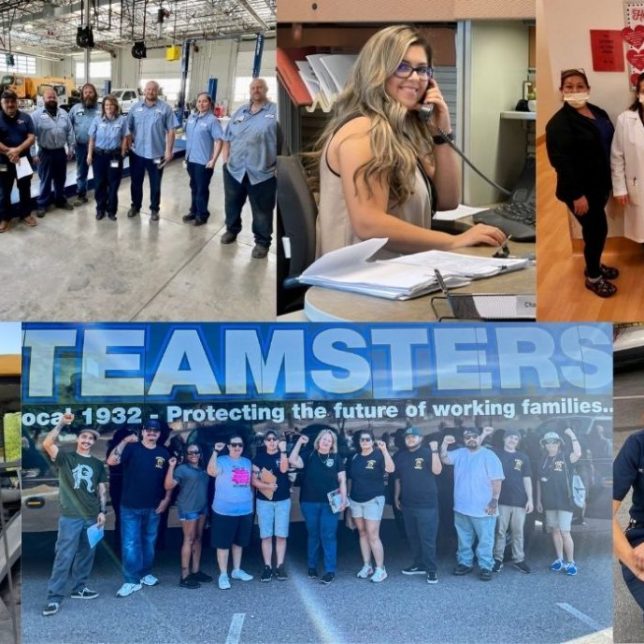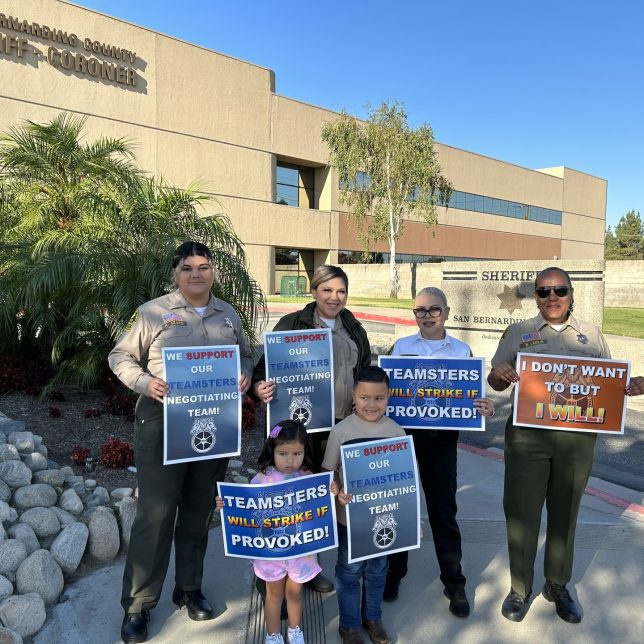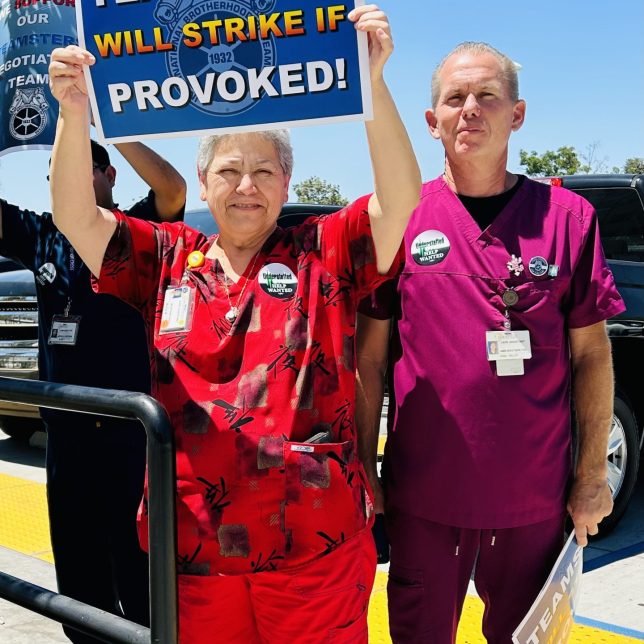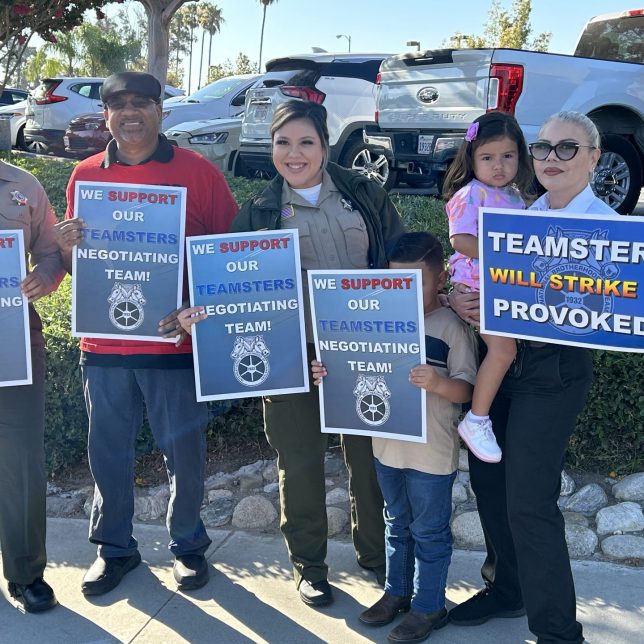A Brighter Vision for Tomorrow
[DISPLAY_ULTIMATE_PLUS]
In 1977, San Bernardino was deemed an All-America City. A working person then could expect to be paid enough to live a decent life and set their children down the path to prosperity.
Today, it is in a race to the bottom with the rest of the cities in the Inland Empire. A region once filled with good union jobs that gave workers a voice and economic stability has been transformed throughout the years by the logistics industry, resulting in a largely non-union and low-wage landscape for residents.
On October 25th, Teamsters Local 1932 gathered over 50 elected officials from San Bernardino and Riverside Counties to build a consensus around two central questions: Is this economic picture a problem, and if it is, can we fix this problem together?
Eric Nilsson, Chair of the Economics Department at the California State University, San Bernardino, explained in a presentation that morning that poverty rates in the Inland Empire are now higher, both absolutely and relative to California, than before the new-logistics-based economy appeared.
But as he explains it’s not just proximity that has allowed for a flourish in logistics — development throughout the Inland Empire has been titled in this direction because elected officials have done so strategically. Elected officials in our home communities have chosen to compete with one another to see who can secure the biggest tax subsidy deal for what is often some multinational corporation hoping to bring in another heavy-polluting, infrastructure -disrupting warehouse and its low-wage jobs.
Ellen Reese, Chair of Labor Studies, and Professor of Sociology at the University of California, Riverside, followed that, with a presentation previewing a soontobe released policy brief, titled, “The Need for a Better Deal for Workers & Residents in Inland Southern California: A Case Study of QVC Inc.’s Operating Covenant Agreement with Ontario, California”
According to Professor Reese and her co-authors, the 2015 agreement between the City of Ontario and QVC, Inc. results in significant amounts of public funds being given away every year while allowing essentially no accountability in quality of jobs provided by the home shopping giant.
While other cities and counties throughout the country have done it better, involving the community enough to extract concessions from corporations in exchange for tax incentives, the City of Ontario did what many cities throughout the Inland Empire often do — leave out the community and get little to nothing in return.
With these facts in mind, Teamsters Local 1932 envisions a brighter tomorrow. The poverty rate doesn’t have to be higher than the days when San Bernardino was an All-America City. The jobs that have proliferated here do not have to be low-wage jobs, and cities don’t have to give up the farm for them. By utilizing Community Benefit Agreements, and allowing for a coordinated effort by community members to have a voice, we can develop the Inland Empire together, instead of encouraging a dog-eat-dog status quo.
An overwhelming majority of the room left our gathering on October 25th in agreement that our current race to the bottom is a problem. They agreed to meet again with Teamsters Local 1932 to start working on a brighter tomorrow and a better deal for the Inland Empire.
Teamsters Local 1932, a union of 14,000 working people standing together and dedicated to public service, will continue to transform the Inland Empire. Will you stand together with us?

